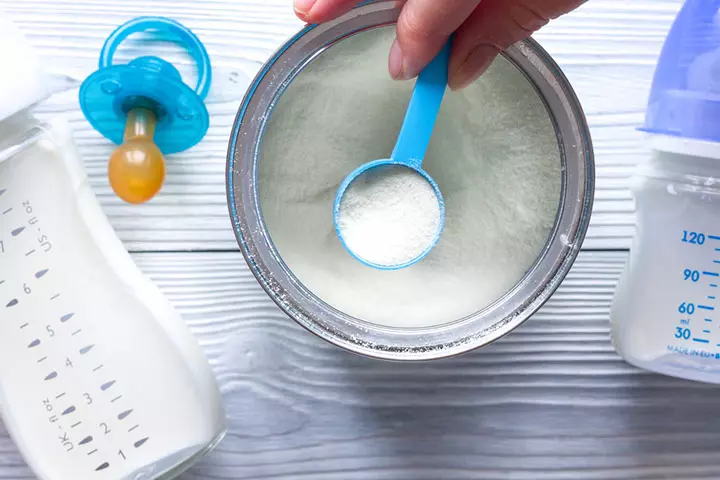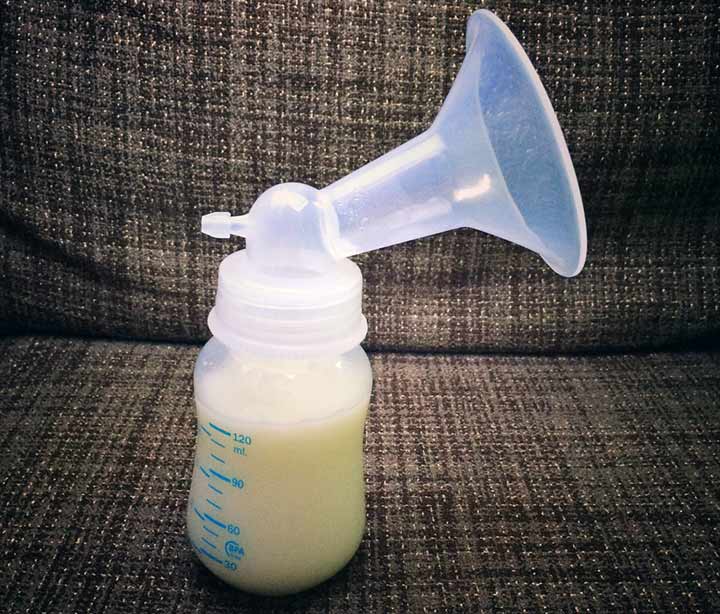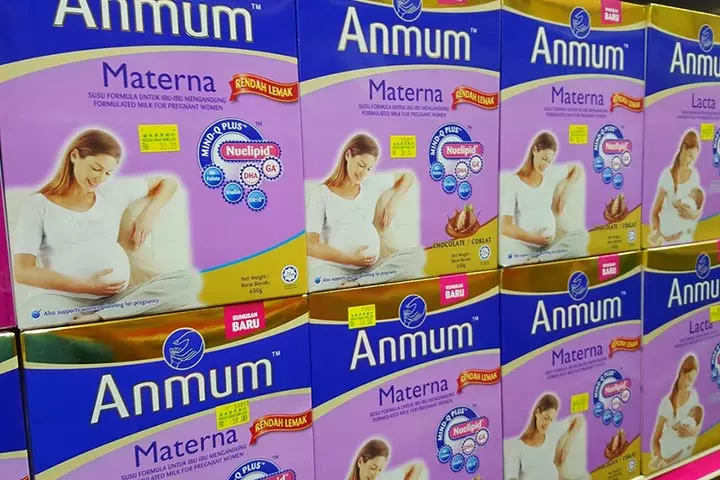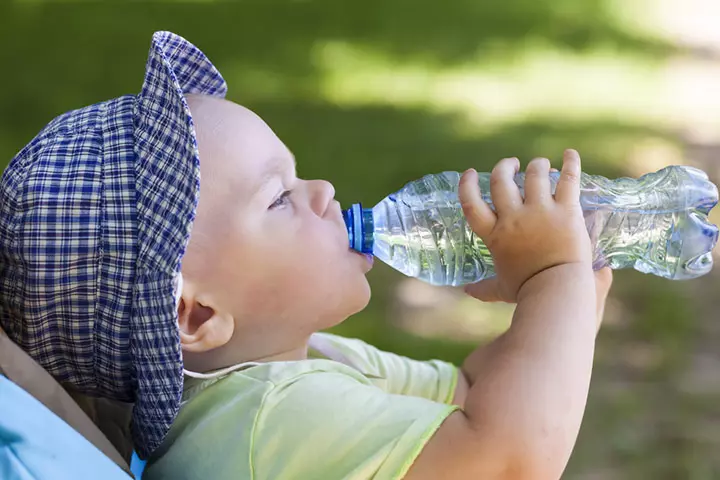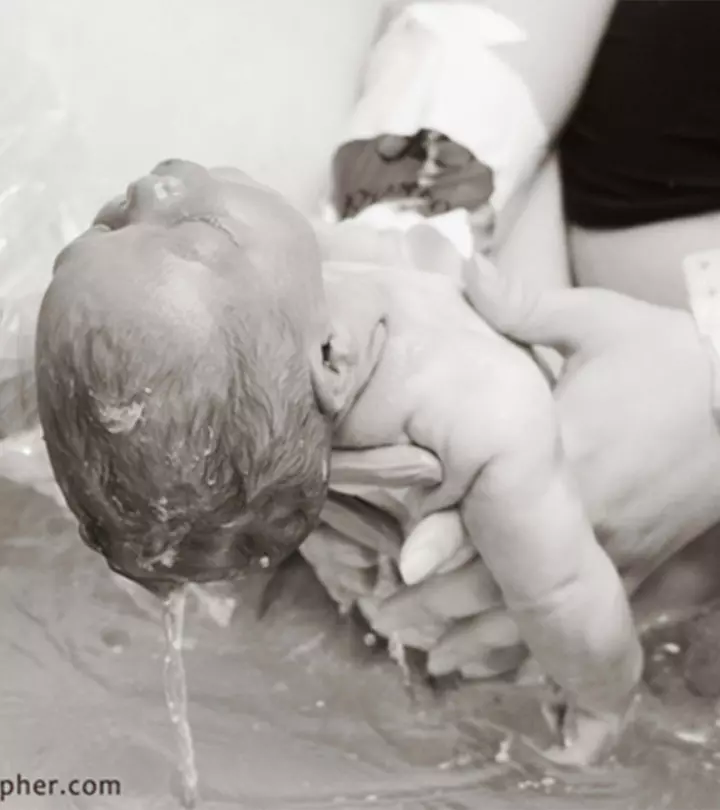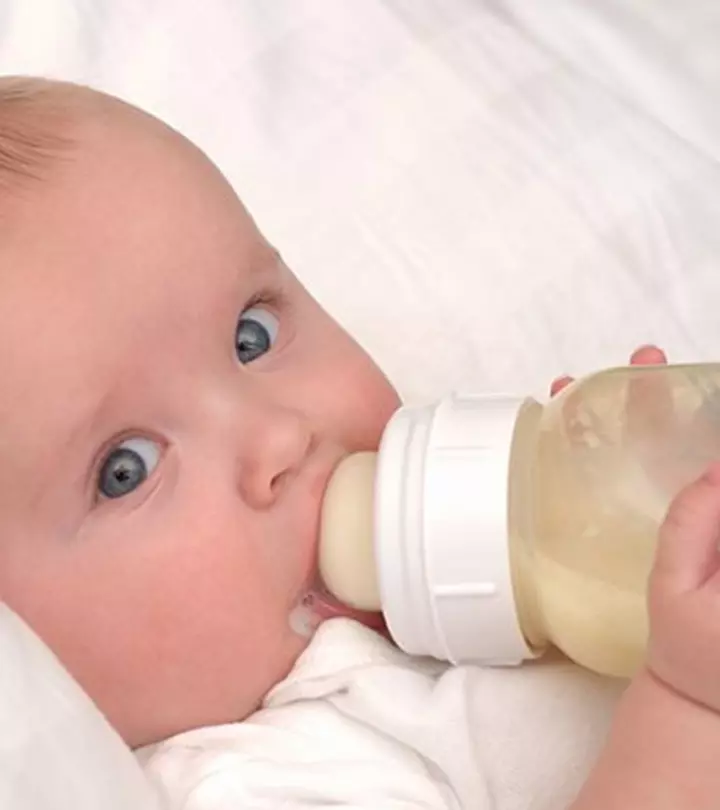

Image: Shutterstock
Parenting is not an easy job. It requires a lot of care and caution to plan things that will benefit your child and ensure his/her well-being.

One of the very important aspects of your child’s growth is the nutritional demands of their body. There are so many suggestions and advice regarding the same that you may end up adopting some wrong feeding habits for your child, which may have adverse effects on their health.
One of such practices is to add water to your baby’s milk – whether breastmilk or formula feed. And it may have serious repercussions on the baby’s health, which could also turn fatal. In an unfortunate incident, the parents of a 10-week old baby were charged with murder because they diluted their baby’s milk with water. It caused salt and electrolyte imbalances in her body and the baby died of water-toxicity (1).
Experts say that until the age of 9 months of age, formula or breastmilk fulfils all nutritional needs of the baby. Breastmilk is nature’s elixir for babies and you should not tamper with its content and consistency. However, if you are worried about the correct portion of formula to be added to the water, you can refer to the preparation guidelines on the pack or to WHO’s guidelines of breast milk substitutes (2).
Apart from adding water to the milk, there are other mistakes that parents may commit unknowingly if the baby is exclusively or partially fed on milk, and they are as follows:
1. Mixing Breastmilk With Formula Milk
Image: Shutterstock
Never mix your breastmilk with the formula feed, though you can provide both alternatively. It is because your breast milk has a different concentration of essential nutrients in foremilk and hindmilk as compared to formula milk. If the baby doesn’t finish the contents of the bottle, your precious breast milk gets wasted. There is no such problem when they are fed from both the sources separately.
2. Using ‘Bought’ Or Donor Breastmilk
Image: Shutterstock
There are many disadvantages of using breast milk from other sources, even if they happen to be your friends or relatives. It is because there is a chance of infected milk passed on from the donor, unless you are aware of her detailed medical condition/history. Moreover, you may not be sure if the container of the milk is properly sterilized or if the milk has been contaminated. In fact, there have been reports where it was found that some donor samples even had cow milk (3).
For more information on using donor milk and its cons, refer to this link.
3. Not Following The Preparation Guidelines
Image: Shutterstock
It is very important to prepare the formula feed as per the guidelines mentioned on the packet. The temperature of water, the sterile container/bottle, the exact scooping, the correct way of mixing, storing as well as discarding the unused portion – all of these are important factors in feeding. If the preparation is too weak or strong, it can affect your baby’s health. It will either cause sickness or keep your baby undernourished. It can even affect your baby’s kidneys.
4. Giving Ready To Drink Water Bottles To Babies
Image: Shutterstock
There is sterilised bottled water available for babies that come in clean packaging, with nipples and other attachments. However, they are not deemed fit for consumption for babies under 6 months of age or for mixing with formula powder, owing to the chemical treatment of the bottles or the bottled water (4).
You might not be sure if the water has gone through rigorous checks for contamination. Plus, you also need to check for sodium and sulphate traces before you can use the water for your baby. Therefore, boiled water that is cooled (even the bottled ones) remains the best option for babies (5).
These were some important factors about feeding your baby the right way. Hope you will keep these pointers in mind the next time you plan your baby’s feeding.
Community Experiences
Join the conversation and become a part of our nurturing community! Share your stories, experiences, and insights to connect with fellow parents.

